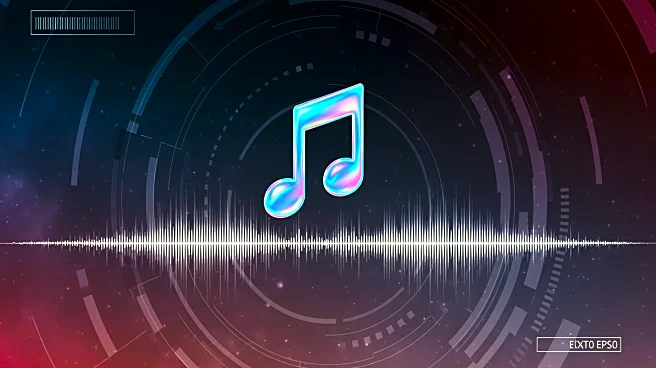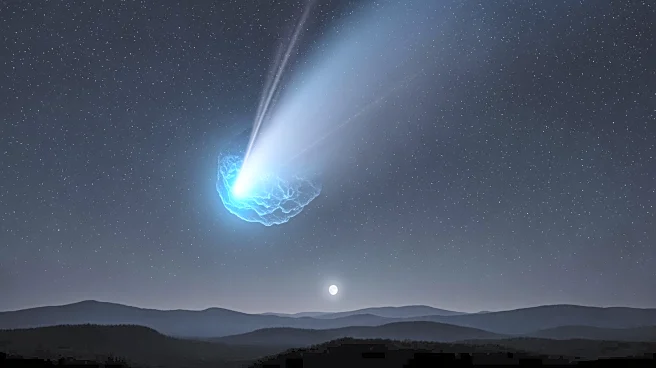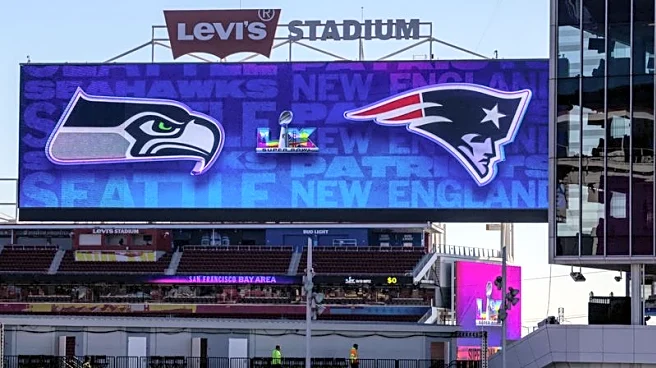What's Happening?
Billboard has observed a significant increase in the presence of AI musicians on their music charts, with at least one AI artist debuting each week over the past month. This trend highlights the growing influence of artificial intelligence in the music industry.
AI-generated music has become more prevalent, with some artists using AI to create entirely new songs or to enhance existing music. Xania Monet, an AI project by poet Talisha Jones, recently made history by becoming the first AI artist to debut on a Billboard radio chart, specifically the Adult R&B Airplay chart. This development underscores the increasing difficulty in distinguishing between human and AI-generated music.
Why It's Important?
The rise of AI in music represents a significant shift in the industry, potentially altering how music is created, distributed, and consumed. This trend could disrupt traditional music production and challenge the role of human musicians. AI's ability to generate music quickly and efficiently may lead to increased competition for human artists, who may struggle to maintain their audience. The music industry may need to adapt to these changes by developing new business models and strategies to integrate AI while preserving the value of human creativity. The ethical implications of AI-generated music, such as intellectual property rights and authenticity, also warrant consideration.
What's Next?
As AI continues to gain traction in the music industry, stakeholders may need to address the challenges and opportunities it presents. Record labels, artists, and industry professionals might explore collaborations with AI to enhance creativity and innovation. Additionally, regulatory bodies could consider establishing guidelines to ensure fair competition and protect the rights of human musicians. The ongoing evolution of AI in music may also prompt discussions about the future of live performances and the role of AI in concert settings.
Beyond the Headlines
The integration of AI in music raises questions about the cultural and artistic value of music. As AI-generated music becomes more common, society may need to redefine what constitutes art and creativity. The potential for AI to replicate or surpass human creativity could lead to a reevaluation of the human role in artistic expression. Furthermore, the use of AI in music may influence other creative industries, such as film and literature, prompting broader discussions about the impact of technology on culture.















